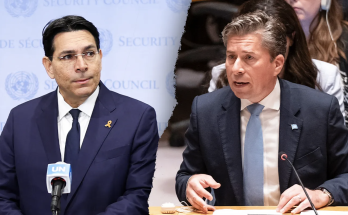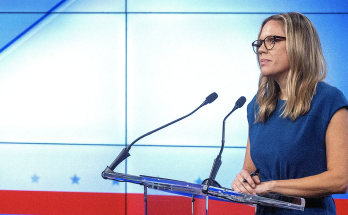Pope Leo XIV’s papal name has a storied history — and stretches all the way back to the year 440
:max_bytes(150000):strip_icc():focal(999x0:1001x2):format(webp)/pope-leo-xiv-050825-9-1f856aa9fabd4f97a913fde4974eb4f7.jpg)
NEED TO KNOW
- On Thursday, May 8, the new pope was introduced as Pope Leo XIV
- Choosing a new name upon being elected pope is a longstanding tradition, dating back to the first pope, St. Peter — whose baptismal name was Simon
- Taking the name of Leo XIV is a clear signal, at least to me, that this guy wants to put moral questions and moral leadership at the center of what the Pope is doing,” one expert tells PEOPLE
The 267th pope has chosen his new name: Pope Leo XIV.
Born with his baptismal name of Robert Francis Prevost, his papal name is more of a traditional choice — and one with a storied history. The first of the name, Pope Leo I, was elected in 440 and sought to secure the unity of the Church during immense conflict.
The most recent pope with that moniker, Pope Leo XIII, was head of the Church from 1878 until 1903, and was a force of connection as the Church navigated relationships with civil governments — and was less opposed to scientific progress, according to Britannica.com. Additionally, he was seen as being a “great champion of the poor,” Dr. Charles Gillespie — a Catholic studies professor at Sacred Heart University, tells PEOPLE.
:max_bytes(150000):strip_icc():focal(999x0:1001x2):format(webp)/pope-leo-xiv-050825-7-6b6f0670707a4c79a60e4bbadb12150f.jpg)
Leo XIII was also known for writing an encyclical called “Rerum novarum,” which translates “The New Things” — and Gillespie says that inaugurated what is called “Catholic social teaching.”
“Taking the name of Leo XIV is a clear signal, at least to me, that this guy wants to put moral questions and moral leadership at the center of what the Pope is doing as the leader of Catholics, but also as a thought leader for the world, also a champion for the poor and the underrepresented,” the expert explains.
“I think that’s a theme from Pope Francis we’re going to see continued by Robert Prevost,” Gillespie adds. “He also had the job of appointing and helping Pope Francis select the bishops of the world. So he was the person that Pope Francis chose to put in charge of putting the kind of leaders he wanted to see in his church around the globe.”
Dr. William T. Cavanaugh, a professor at DePaul University, also found it “interesting” that the name Leo was selected, and believes it may speak volumes about the importance the new pope may put on Catholic social teaching.
Cavanaugh also says Leo XIII “was also a big promoter of the work of Thomas Aquinas,” a Scholastic thinker from the 11th century, “which indicates a certain kind of openness to other intellectual currents.”
“Aquinas was famous for incorporating Aristotelian thought into Christian thought,” he explains. “And so those are some possible directions that the name indicates.”
:max_bytes(150000):strip_icc():focal(999x0:1001x2):format(webp)/pope-leo-xiv-050825-11-a852dc6e3dbc401bb06a411edb8e717a.jpg)
Adopting a new name as pope is a “longstanding tradition” that dates back to St. Peter, the very first pope, whose baptismal name was Simon, per the Vatican. Although some of the earliest popes chose not to change their names, in recent history, most have taken part in the time-honored tradition.
According to the Vatican, the most popular pope names in history have been John, Gregory, Benedict and Pius, as well as recurrent names Clement, Innocent, Paul and Leo, A pope has never chosen the name Peter — the first pope and a truly untouchable Catholic figure — nor has any pope claimed James or Andrew (two disciples), nor Joseph (earthly father of Jesus) or Luke (author one of four gospels).
As for how they decide on names, the Vatican explained that pontiffs “often chose the names of their immediate or distant predecessors out of respect, admiration, or recognition to mark continuity, but also different names to mark innovation.”
Andrea Gagliarducci, a Vatican journalist, tells PEOPLE that Pope Leo XIV is, to her knowledge, “a very pragmatic person.”
“It shows the name Leo, which is interesting because it marks a discontinuity not only with Pope Francis but with all the last centuries Pope, which means that there is a fresh start,” she explains.
Such was the case with Pope Francis — there had been no pope by that name before him. Francis — born Jorge Bergoglio — chose his name to honor St. Francis of Assisi, who like the late pontiff, led a life marked by helping disenfranchised people.
Francis’s papal name did initially spark controversy, though, as some saw the move as a disregard for precedent, while others saw the move as a reflection of a shift in the Catholic church.


